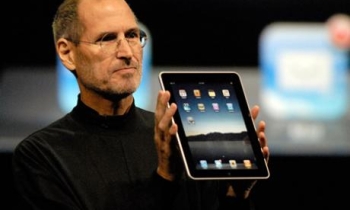The proverbial 800lb gorilla, it was noted on the sidelines of last week’s Royal Television Society Convention in Cambridge, has recently bulked up. When discussing companies such as Google, a 1,500lb beast in the corner of the room is nowadays invoked. Was this, one television pundit asked, a case of "gorilla inflation"?
Another industry is now asking whether the internet search and advertising company has got too big for its boots. The Authors Guild, an American organisation that represents some 8,000 writers, believes the appetite of the Google gorilla is in danger of doing irrevocable harm its dead-tree industry.
Last year, Google unveiled plans to digitise the archives of five of the world’s great libraries. As part of its mission to "organise the world’s information", the company planned to make available online books from all eras. The Bodleian Library at Oxford University says it has sidestepped the question of copyright infringement by giving Google access to 19th-century books only. However, Harvard, another participant, plans to provide selected shelves of books, many of which are apparently still in copyright.
Authors are understandably perturbed. If people can read popular novels over the internet, they are less likely to buy them, and so their publishers will not have any royalties to pass on.
Nick Taylor, the president of the Authors Guild, said Google’s library scheme represented a "plain and brazen violation of copyright law ... It is not up to Google or anyone other than the authors, the rightful owners of these copyrights, to decide whether and how their works will be copied".
British publishers may follow suit. They have not ruled out their own legal action. The UK-based Publishers Association today told Times Online that it was starting a website www.googledebate.com to canvass views from anybody with an opinion on the debate. The site asks: "is the Age of Search bringing exciting new opportunities for publishers, or is it the beginning of the end?"
What might Google’s entry read like if it were to post a comment? The company, operating under its "don’t be evil" motto, has repeatedly claimed it is a force for good and a servant in virtually every area it operates. Take its news site, Google News. Nathan Stoll, the Google executive that runs it, this week told Times Online that the site "creates consumers for news organisations" by showcasing stories and channelling audiences towards them.
Could Google argue, in a similar manner, that in offering books online, it can foster a new generation of consumers for publishers? Recent figures show that young people in America are spending more time browsing the net than watching television. And access to young audiences is invaluable for the book business. Research has shown that young people engendered with a love of reading can easily plough through 500 times as many words in early life as those who are not.
Meanwhile, lightweight, portable and even flexible computer screens that allow people to read text, even in sunlight, are being developed. Such a handheld platform could be the spur that prompts the sale of book content in a digitised form online a sobering thought for traditional booksellers but potentially very good news for authors and publishers.
Might Google’s library service spawn a whole generation of book lovers and buyers? Quite possibly, but the authors have already penned a very different ending to the story. In the United States, they have made it clear that they would prefer to enjoy the fruits of their labour today through royalties raised from sales, than hold out for the possibility of digital jam tomorrow. Generally, copyright lasts for the life of the author plus 70 years, but in Britain, where new editions of otherwise out-of-copyright works enjoy a further 25-year protection period, they are worried that Google endangers the way that model operates. Google, meanwhile, has suspended its scanning operation, offering, it says, publishers the opportunity to tell it what books it does not want included.
It is not only book publishers who have been irked over copyright issues involving Google. Earlier this year Agence France-Presse (AFP) took exception to its copyrighted photographs appearing on Google’s news site and successfully demanded their removal. In the US, Perfect 10, the adult magazine publisher, last month sought a preliminary injunction against Google to stop the search giant from allegedly displaying copyright images of its models. "Google is directly infringing on our copyrights. They are copying and showing our work on their Web site," said Norm Zada, Perfect 10's founder, pre-empting the American authors' complaint of yesterday.
It will also weigh on Google’s mind that in June, the US Supreme Court ruled that technology companies that create tools that encourage copyright infringement can be held liable for their users’ illegal actions. After that judgment, Google found that hit movies such as The Matrix had been accessed via its video search tool. The company quickly removed much of the full-length studio and television content. The world’s authors will hope for a similar outcome.
So how will this tale conclude? It is fair to say that after the AFP case, nobody would be very surprised if Google rejigged its library plans to drop books under current copyright. Perhaps an "opt in" rather than "opt out" scheme will be negotiated with the publishers. However, if authors and publishers feel they can resist the Google gorilla and its companions indefinitely, they are reading from the wrong page.









